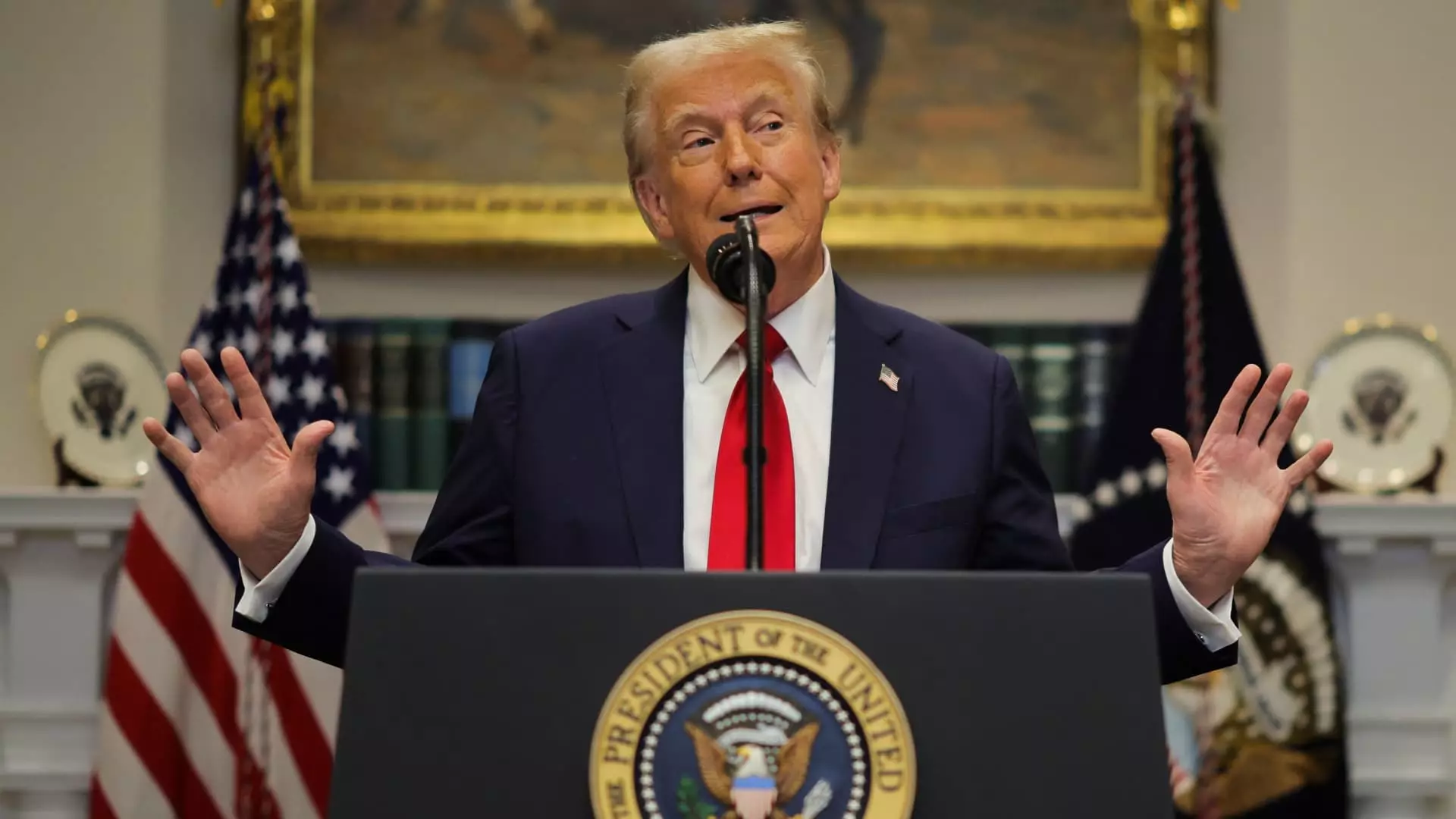In the ever-evolving landscape of international trade, the rhetoric surrounding tariffs can often reshape economic relationships between nations. Recently, President Donald Trump expressed intentions to impose a 10% tariff on Chinese goods, with potential implementation as soon as February 1. This decision emerges amidst a complex dialogue addressing not only economic concerns but also pressing public health issues such as the rampant opioid crisis fueled by substances like fentanyl. The implications of these proposed tariffs are potentially vast, affecting not only U.S.-China relations but also the economic fabric of North America.
The president’s remarks make clear a direct link between tariffs and the issue of fentanyl trafficking. He emphasized that this synthetic opioid, primarily synthesized in China and exported to the U.S. through Mexico, is a significant contributor to the overdose epidemic currently plaguing America, which claims tens of thousands of lives annually. The emphasis on cooperation between Washington and Beijing to combat this crisis signals a burgeoning realization that drug regulation might serve as both a humanitarian and economic negotiation tool between the two countries.
Further complicating matters is the backdrop of fluctuating trade surpluses and deficits, particularly regarding the U.S.’s trading relationship with China. Reports indicate that while U.S. exports to China saw a minor decline, imports continued to proliferate, leading to a substantial trade surplus that has not gone unnoticed by the Trump administration. The Peterson Institute for International Economics provided sobering predictions, suggesting that if the U.S. proceeds with a tariff — and should China respond reciprocally — both economies could face considerable GDP losses amounting to billions over the four-year span of Trump’s second term in office.
In stark contrast to Trump’s position, Chinese officials, including Vice Premier Ding Xuexiang, have recommended a collaborative approach that favors economic globalization, warning against the inevitability of losses in a trade war scenario. This underscores a notable tension where U.S. policy is pushing for isolationist tendencies while China calls for a more integrated economic landscape. Interestingly, major Chinese media outlets have refrained from covering the proposed tariffs extensively, opting instead to highlight other repercussions of U.S. trade policies, such as potential tariffs on the European Union.
Aside from the focus on China, President Trump also hinted at plans for significant tariffs on Mexico and Canada, citing issues related to border control. His comments suggested a hefty 25% tariff could be levied on goods imported from these neighboring nations. The motivation behind these discussions reflects not just economic strategy but a broader political narrative aimed at bolstering nationalistic sentiments. The potential tariffs hence pose a unique challenge that could strain established trade relationships within NAFTA, now USMCA, and complicate North American economic cooperation.
In summation, the discussions surrounding proposed tariffs by the Trump administration underscore a period of uncertainty and tension in international trade relations. These tariffs are not merely economic tools but rather complex symbols of political agendas, public health crises, and broader global dynamics. As the United States faces mounting pressure to address its opioid epidemic while navigating challenging foreign relations, the implications of these decisions will extend far beyond February 1, potentially altering the course of international trade, diplomacy, and economic policy for years to come. Ultimately, the ramifications of such tariffs will necessitate close observation and analysis as they unfold.



Leave a Reply